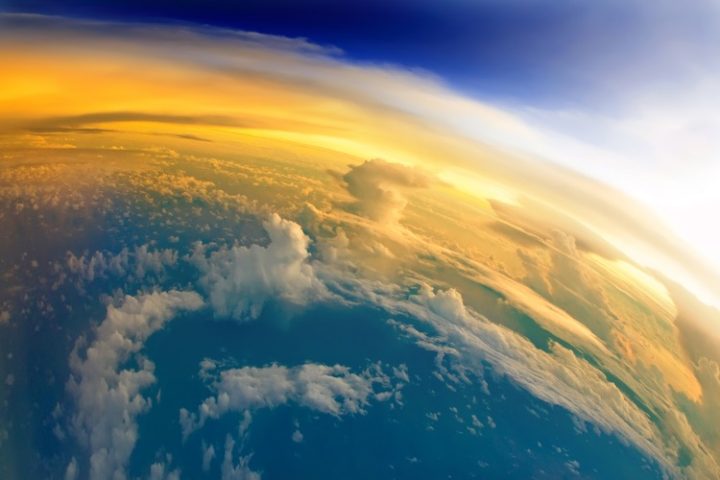
Instead of using their pages to conduct a true debate regarding whether climate change, supposedly caused by mankind’s burning of fossil fuels, is a real problem, the editors at Scientific American appear to be calling for the use of a risky geoengineering technique known as Stratospheric Aerosol Injection (SAI) to slow down the menace of man-made global warming.
In an October 1 article by environmental journalist Douglas Fox, Scientific American appears to make the case for solar geoengineering, also known as solar radiation management (SRM). SRM is a process meant to cool the Earth by putting vast amounts of sulfur dioxide (SO2) gas into the atmosphere. In essence, the process calls for humans to replicate the process by which large volcanic eruptions cool down the weather for a period of time.
In the article, Fox states, “As it becomes clear that humans are unlikely to reduce emissions quickly enough to keep global warming below 1.5 degrees Celsius, some scientists say SRM might be less scary than allowing warming to continue unabated.”
The article cites studies claiming that if governments could release millions of tons of SO2 into the atmosphere in an attempt to block “1 or 2 percent” of Earth’s sunlight, it could slow down the planet’s alleged warming, and allow the world the luxury of having a little more time to address the supposed out-of-control global warming caused by mankind’s emissions of greenhouse gasses.
SRM could be a very politically convenient solution for politicians who want to be seen as “doing something.”
According to climate scientist Ken Caldeira from the Carnegie Institution for Science, SRM is “the only thing political leaders can do that would have a discernible influence on temperature within their term in office.”
So, in an absolutely terrifying scenario, politicians could order SRM to be carried out and then claim that they’ve cooled the Earth with their policies. Imagine the political ads.
Besides the political backlash, there are other risks involved with SRM. A study from Rutgers University concludes that widespread use of SRM could result in varied effects to world’s food supply — some good and some bad. However, “Not one of the 11 climate change or climate intervention scenarios we analyzed benefits everyone,” said researcher Brendan Clark.
“Large amounts of climate intervention to significantly reverse warming and lower the global average temperature would favor agricultural production in the tropics,” Clark said.
However, Clark notes that “nations may have different ideas of what constitutes an optimal global temperature, which could lead to conflicts. It would be like people fighting over the thermostat in a house, but on a global scale.”
Any strategy for which possible side effects include uncertainty in the agricultural sector should clearly be considered a last resort to be tried only after the globe has dangerously warmed already. And we’re nowhere near that point yet.
Among the other risks associated with SRM include unintended warming or excessive cooling due to uncertainty in estimates of the amount of SRM needed, changes in volumes of regional precipitation, unknown effects on stratospheric ozone, potential interactions with a major volcanic eruption and, possibly worst of all, the potential for international conflict because countries harmed may act against countries that deployed SRM.
Clearly, SRM is an idea not without risks.
“Are we willing to live with all these potential impacts to have less global warming? That’s the question we’re trying to ask here,” said Alan Robock, a Rutgers climatologist. “We’re trying to quantify each of the potential risks and benefits so we can make informed decisions in the future.”
Perhaps, instead of attempting risky geoengineering projects in an attempt to fix a problem, it would be better to have a debate on whether we truly have that problem.
The climate zealots claim that the science is already settled and that mankind’s CO2 emissions are leading to out-of-control global warming. But there is another side to the issue that hasn’t been truly listened to, mainly for political reasons. The stakes are too high not to at least have the discussion.




